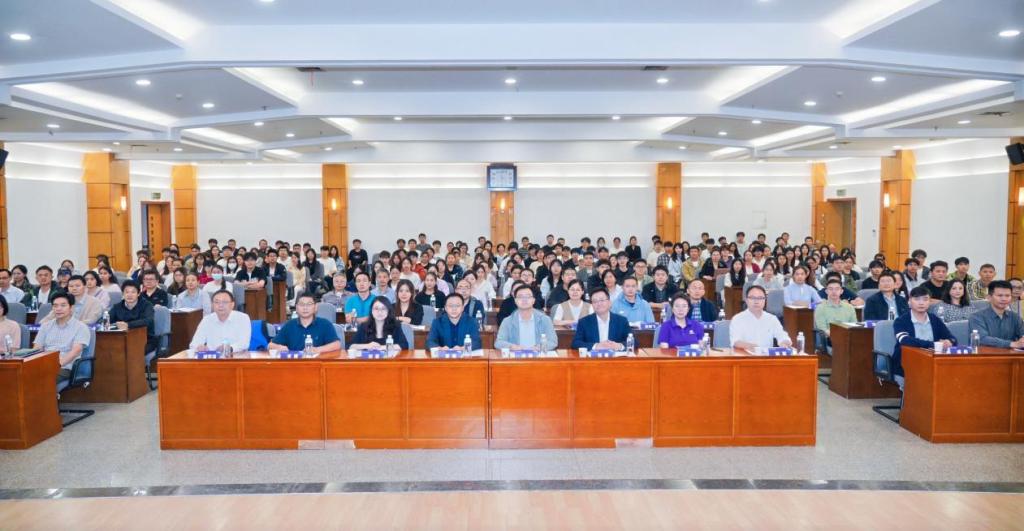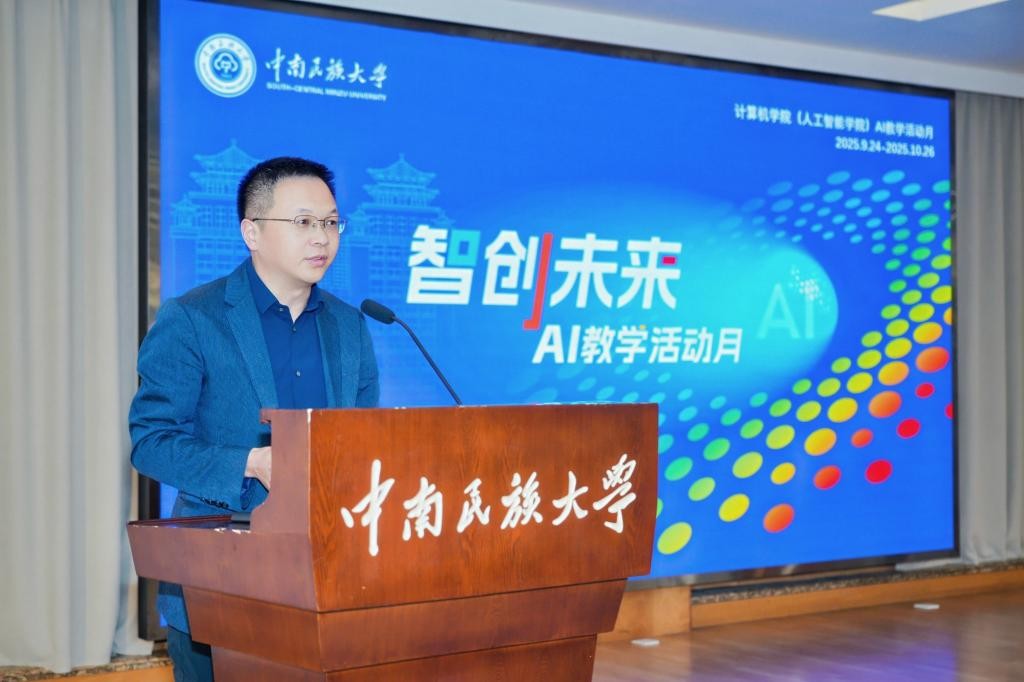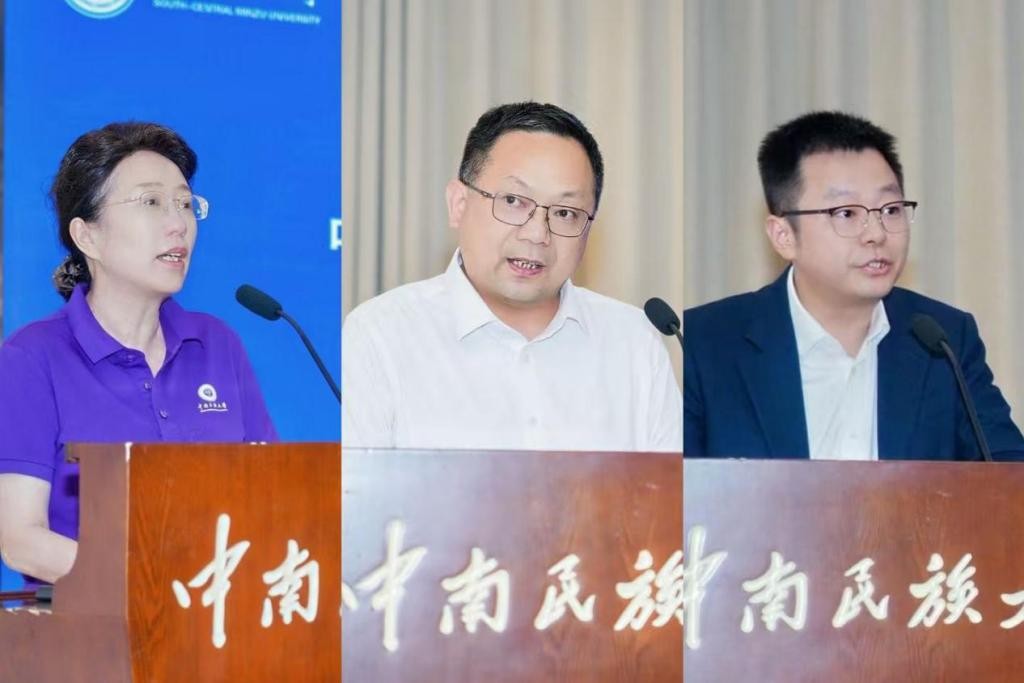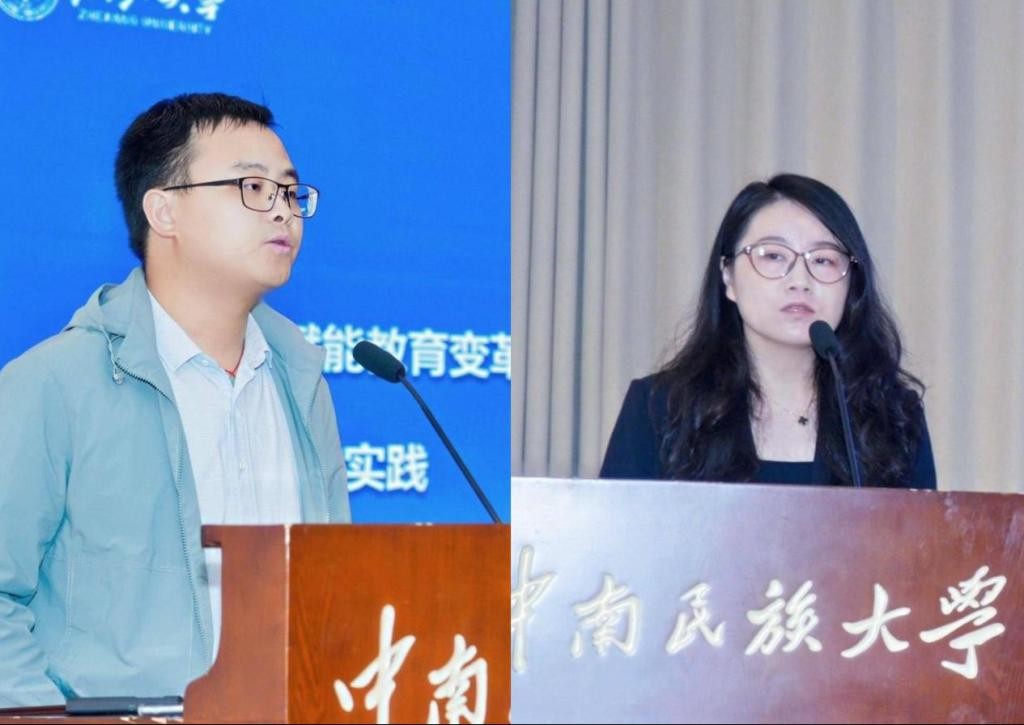On September 24, the launch ceremony for the university's "Intelligent Future: AI in Education Month" was held at the Academic Exchange Center. The event was attended by Qin Rui, Standing Committee Member of the University Party Committee and Vice President; external experts including Kuang Kun, Deputy Director of the Department of Artificial Intelligence at Zhejiang University's College of Computer Science; Liu Yun, Head of Baidu's AI Technology Ecosystem in Central China; and Ren Yong, General Manager of Baidu PaddlePaddle (Wuhan) Artificial Intelligence Industrial Empowerment Center; as well as Qin Jun, Dean of the Graduate School; Hu Junhao, Dean of the Undergraduate School; heads of relevant units including the SCMU School of Computer Science (School of Artificial Intelligence); and over 200 representatives, including vice deans and faculty and student representatives from 22 schools. The ceremony was presided over by Tie Jun, Dean of the SCMU School of Computer Science (School of Artificial Intelligence).

Scene from the Launch Ceremony, Picture Source: SCMU School of Computer Science
In his address, Qin Rui emphasized that artificial intelligence has become a driving force in reforming higher education. Guided by the "AI + Education" strategy, the university will accelerate the deep integration of AI with teaching and learning, striving to build a distinctive intelligent education ecosystem. He underscored that the university will continue to refine its top-level design and coordinate the development of information platforms and resource integration to provide solid support for cultivating future-oriented innovative talent.

Qin Rui Delivering the Address, Picture Source: SCMU School of Computer Science
Qin Jun stated that the Graduate School, aligning with the development direction of "specialization, interdisciplinary integration, and digital intelligence," has approved 24 AI-related interdisciplinary courses in the latest training plan. This aims to build a smart education curriculum system covering multiple disciplines and enhance the innovative capabilities and research literacy of graduate students. Hu Junhao expressed that the Undergraduate School will promote the regular application of AI in curriculum design and classroom interaction, continuously expanding the reach of general education. Currently, two courses offered by the School of Computer Science—"Artificial Intelligence and Computational Thinking" and "Artificial Intelligence and Python Programming"—have been extended to 19 schools across the university. Ren Yong noted that the Baidu PaddlePaddle (Wuhan) Artificial Intelligence Industrial Empowerment Center will fully leverage its advantages in technology, education, and ecosystem to provide comprehensive support for universities and enterprises. Relying on the PaddlePaddle and ERNIE ecosystem, the center will promote the development of AI curriculum systems and practical training projects, foster industry-academia collaboration and innovation, and jointly establish a new hub for AI talent cultivation and achievement transformation in central China.

Experts Delivering Speeches, Picture Source: School of Computer Science
During the academic report session, Kuang Kun delivered a presentation titled "AI Empowering Educational Transformation: Actions and Practices." He outlined the development path of AI education and shared Zhejiang University's practical experience, combining the development of core "101" textbooks and a layered teaching model, providing valuable insights for our university's efforts to advance its intelligent education ecosystem. Liu Yun, focusing on the theme "Talent Cultivation in the Era of Large Models," drew on industrial practices to highlight how the application of large models is reshaping talent requirements. She recommended leveraging deep university-industry collaboration to build a closed-loop training system encompassing "curriculum—practical training—projects—evaluation."

Thematic Reports, Picture Source: School of Computer Science
It is reported that the "AI in Education Month" is jointly organized by the Graduate School, the Undergraduate School, and the School of Computer Science (School of Artificial Intelligence). The event features six main series of activities: thematic training, AI classroom open days, interdisciplinary lesson preparation, Distinguished Engineer lectures, the Industrial Software Innovation and Development Forum, and the Hubei Provincial Conference on General Education in Artificial Intelligence. The activities will continue until October 26.